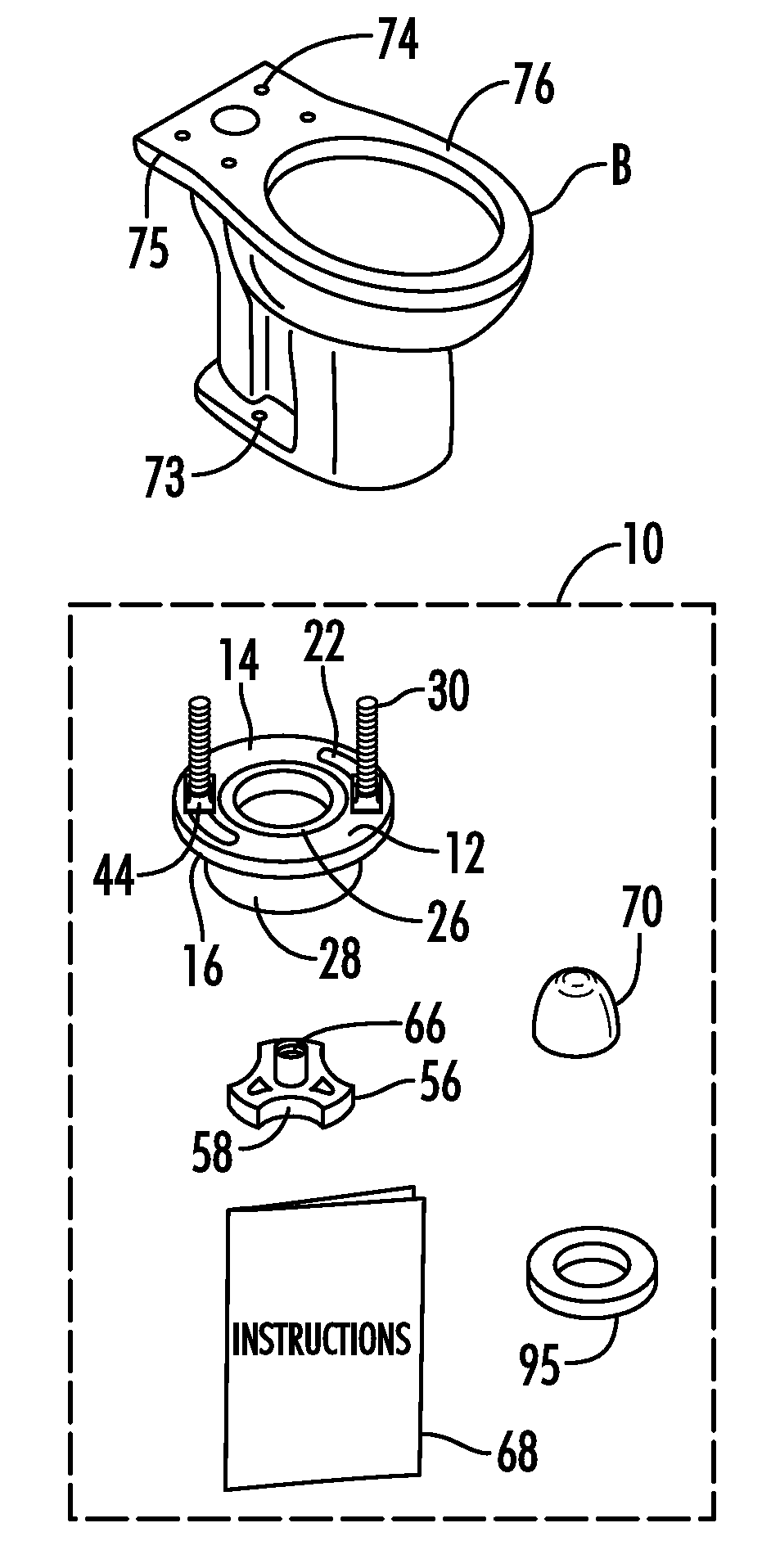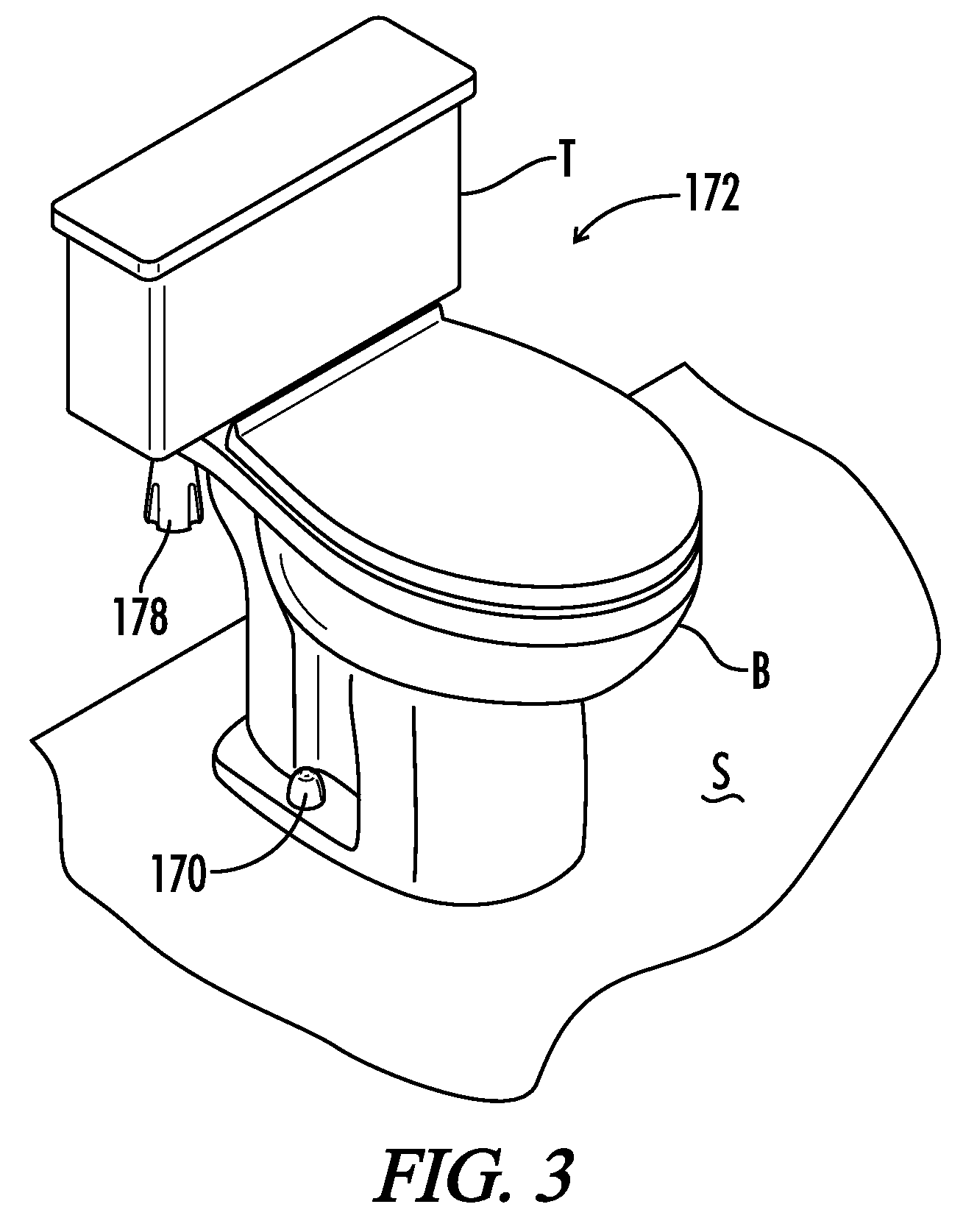Kits, assemblies and methods for no-tools toilet installation
a toilet and no-tool technology, applied in the field of toilet installation and mounting, can solve the problems of not being able to straighten or realign the bolts, affecting the installation process, so as to reduce the risk of injury, minimize the amount of time, and improve the prior art method of installation
- Summary
- Abstract
- Description
- Claims
- Application Information
AI Technical Summary
Benefits of technology
Problems solved by technology
Method used
Image
Examples
Embodiment Construction
[0060]The invention includes kits and methods for installing toilet bowls and toilet assemblies without the ordinary required use of tools. It also includes an installed toilet bowl and toilet bowl assembly. As used herein, use of tools indicates use of bolt cutters and / or saws such as hand saws for cutting toilet flange mounting bolts, use of wrenches, pliers, ratchets and the like for tightening multi-component bolt and nut assemblies, and / or use of any other external tools other than a user's hands to install. It does not necessarily exclude manual use of a level to check installation after it is complete for any readjustment. Manual adjustment, tightening and the like indicates a user / installer of the toilet bowl or assembly using only hand operation to carry out a given operation. A “toilet assembly,” unless indicated otherwise herein, is intended to mean either a two-piece toilet assembly in which the toilet bowl and a toilet tank are separately made and installed by attaching...
PUM
| Property | Measurement | Unit |
|---|---|---|
| size | aaaaa | aaaaa |
| size | aaaaa | aaaaa |
| length | aaaaa | aaaaa |
Abstract
Description
Claims
Application Information
 Login to View More
Login to View More - R&D
- Intellectual Property
- Life Sciences
- Materials
- Tech Scout
- Unparalleled Data Quality
- Higher Quality Content
- 60% Fewer Hallucinations
Browse by: Latest US Patents, China's latest patents, Technical Efficacy Thesaurus, Application Domain, Technology Topic, Popular Technical Reports.
© 2025 PatSnap. All rights reserved.Legal|Privacy policy|Modern Slavery Act Transparency Statement|Sitemap|About US| Contact US: help@patsnap.com



